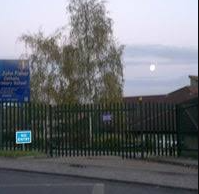
Critics question the logic of housing asylum seekers in a small village after previous policies rejected similar rural locations
Priti Patel has faced accusations of “double standards” regarding her department’s plans to establish an asylum reception centre in Linton-on-Ouse, a small rural village in Yorkshire. The plan has reignited concerns over inconsistencies in her handling of asylum accommodation policies.
The Home Secretary recently revealed plans to repurpose a former RAF site in Linton-on-Ouse to house up to 1,500 asylum seekers. However, critics have highlighted that this contradicts Patel’s own guidance from 2020, when asylum seekers were removed from a hotel in her constituency due to concerns that it was too rural and lacked adequate services.
Kevin Hollinrake, Conservative MP for the area, has expressed strong opposition to the plans, emphasising the lack of public services in the village. “Linton has a population of just 1,200 and is 10 miles from the nearest town. It has very limited access to GP and health services,” Hollinrake wrote to Patel. “This is not an appropriate place to house asylum seekers.”
Charities and local officials have also raised concerns about the decision. Linton-on-Ouse Parish Council has criticised the lack of prior consultation with residents and local leaders. Council Chair Marc Goddard stated that residents were “disappointed and concerned” about the centre’s potential impact and questioned whether the government had properly assessed the site’s suitability.
Maddie Harris of Humans for Rights Network accused Patel of hypocrisy, noting that the decision directly contradicts her previous statement that asylum seekers should be placed in major urban centres. Harris also drew comparisons to the controversial Napier Barracks in Folkestone, where asylum seekers have reportedly endured poor living conditions, lack of mental health support, and chronic overcrowding.
Similarly, Sophie McCann from Medecins Sans Frontieres (MSF) UK and Jon Featonby of the British Red Cross highlighted that military barracks are wholly inappropriate for accommodating vulnerable individuals fleeing violence and persecution.
Despite the mounting criticism, a Home Office spokesperson maintained that the centre would prioritise screening for asylum seekers and engage with the local community to ensure its operation is safe and secure. Nevertheless, concerns persist about whether large, militarised sites will replicate the issues seen at Napier Barracks.
The controversy underscores the ongoing debate about the UK’s approach to asylum accommodation and the balance between operational policies and ethical responsibility.












